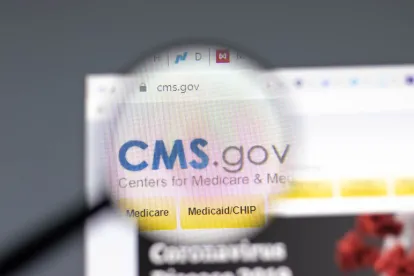It is the annual summer pastime for the pharmaceutical community. Time to review the Centers for Medicare & Medicaid Services (CMS) release of the 2024 proposed Hospital Outpatient Prospective Payment System (HOPPS) and Physician Fee Schedule (PFS) rules.
The HOPPS proposed rule can be found here with a high level summary in the CMS fact sheet. The full PFS proposed rule can be found here, and the companion CMS fact sheet here. Comments to both proposed rules are due September 11, 2023.
Here is an overview of the relevant provisions for pharmaceutical manufacturers and the pharma community:
Hospital Outpatient Prospective Payment System Proposed Rule
Overall Payment Update for HOPPS Providers
CMS has proposed increasing overall outpatient department payment rates by 2.8%.
Payment for Drugs, Biologicals, and Radiopharmaceuticals
The proposed packaging threshold (to establish a separate payment amount for certain drugs and biologicals above the threshold) for calendar year 2024 will be set at $140 per day, an increase of $5 from 2023.
For calendar year 2024, CMS proposes continuing the payment policy that has been in effect since 2013 to pay for separately payable drugs and biologicals, including those purchased at the 340B price, at Average Sales Price (ASP) plus 6%. Note that in a separate, but related rulemaking, CMS has proposed reimbursing 340B Covered Entities $9 billion, which represents close to the differential in Medicare reimbursement between ASP +6% and ASP-22.5%, from 2018 through 2022. CMS set the proposed payment rate in light of the 2022 Supreme Court ruling in in American Hospital Association v. Becerra, which invalidated the lower Medicare reimbursement to 340B Covered Entities at the ASP-22.5% level. CMS is also proposing that a modifier be utilized to identify drugs and biologicals acquired at the 340B price. Under the Proposed Rule, all 340B Covered Entity hospitals would be required to utilize the “TB” modifier effective January 1, 2025.
Whenever Wholesale Acquisition Cost (WAC) pricing is used for a drug or biological (i.e., for new drugs and biologicals without an ASP), such drugs and biologicals will be paid for at the current rate of WAC plus 3%.
All biosimilar biological products will continue to be eligible for pass-through status, guaranteeing separate reimbursement for a period of time regardless of whether the biologic’s per-day cost is under the packaging threshold. In addition, CMS has proposed to exempt all biosimilars from the packaging threshold when the reference biologic is separately paid and reimburse separately for biosimilars, even if the per-day cost is less than the packaging threshold. In the event that the reference biologic’s per-day cost falls below the packaging threshold, all biosimilars would be similarly packaged. CMS believes this threshold packaging exception will “promote biosimilar use of a lower cost alternative to higher cost reference biologicals.”
CMS is soliciting comments on potential modifications to the current packaging policy for diagnostic radiopharmaceuticals. Specifically, CMS is seeking comments on the following payment alternatives:
Paying separately for diagnostic radiopharmaceuticals with per-day costs above the packaging threshold of $140 per-day
Establishing a specific per-day cost threshold that may be greater or less than the packaging threshold applied to other drugs
Restructuring the Ambulatory Payment Codes (APCs) by adding nuclear medicine-specific APCs
Creating specific payment policies for diagnostic radiopharmaceuticals used in clinical trials
Adopting APCs that incorporate disease state being diagnosed or a diagnostic indication of a particular class of diagnostic radiopharmaceuticals
Proposal for Establishing and Maintaining Access to Essential Medicines
CMS is seeking comments on a proposal that would provide an additional payment to hospitals that develop and maintain a three-month buffer stock of certain essential medicines. Oddly, the payment would be under the Medicare inpatient prospective payment system (IPPS), at least initially, even though the proposal is found in the HOPPS Proposed Rule. “Essential medicines” would be defined as one of the 86 medicines prioritized in the report “Essential Medicines Supply Chain and Manufacturer Resilience Assessment” developed by the US Department of Health and Human Services Office of the Assistant Secretary for Preparedness Response.
In its proposal, CMS notes that “[h]ospital procurement preferences directly influence upstream intermediary and manufacturer behavior and can be leveraged to help foster a more resilient supply chain for lifesaving drugs and biologicals. With respect to shortages, supply chain resiliency includes having sufficient inventory that can be leveraged in the event of a supply disruption or demand increase — as opposed to ‘just-in-time’ inventory-management efficiency that can leave supply chains vulnerable to shortage. This concept is especially true for essential medicines, which generally comprise products that are medically necessary to have available at all times in an amount adequate to serve patient needs and in the appropriate dosage forms.”
The new payment would begin January 1, 2024, or after and not be budget neutral — meaning a payment cut would have to occur for something else, perhaps under HOPPS, to pay for the additional administrative payments to the hospitals associated with developing and maintaining the buffer stock of essential medicines. The payments could be provided biweekly as interim lump-sum amounts to the hospitals and would be reconciled annually at cost report settlement.
CMS notes that it may consider expanding the program to include critical medical devices in future years.
Physician Fee Schedule Proposed Rule
Overall Payment Update for Physicians
CMS has proposed a reimbursement decrease of more than 3.36% primarily related to a negative proposed conversion factor update.
Provisions from the Inflation Reduction Act Relating to Drugs and Biologicals Payable Under Medicare Part B
The Inflation Reduction Act (IRA) contains several provisions that affect payment limits or beneficiary out-of-pocket costs for certain drugs payable under Medicare Part B. We summarized these provisions in a previous alert titled “Drug Pricing Reform Finally Becomes Law: What the Inflation Reduction Act Means for Pharma.” The Proposed Rule proposes to codify many of these provisions in regulation. Please note that these provisions apply to Medicare Part B drugs administered in the hospital outpatient, ambulatory surgical center, and physician office settings:
Section 11402 of the IRA amends the payment limit for new biosimilars furnished on or after July 1, 2024, during the initial period when ASP data is not available. Specifically, reimbursement will be the lesser of (1) 103% of the WAC of the biosimilar, or (2) 106% of the lesser of the WAC or ASP of the reference biologic (or 106% of the maximum fair price if the reference biologic is subject to negotiation under the IRA).
Section 11403 of the IRA makes changes to the payment limit for certain biosimilars with an ASP that is not more than the ASP of the reference biological for a period of five years. Medicare Part B reimbursement for biosimilars is temporarily increased to ASP + 8% (8% being calculated on the ASP of the reference product) for a five-year period. For biosimilars currently on the market, the increase will be effective through December 31, 2027. New biosimilars launched prior to December 31, 2027, will experience the temporary increase in reimbursement from their date of launch to the end of the five years. Biosimilars launched after December 31, 2027, will be reimbursed as ASP + 6% (6% being calculated on the ASP of the reference product).
Section 11101 of the IRA creates a new rebate on Medicare Part B drugs to the extent the ASP-based reimbursement is rising faster than inflation as measured by the change in Consumer Price Index-Urban (CPI-U). CMS implemented this requirement in guidance and is now proposing to codify such guidance in regulation. Specifically, CMS is noting that the beneficiary deductible and 20% co-insurance be based on the inflation-adjusted payment amount for a rebatable drug and calculated on a quarterly basis.
Section 11407 of the IRA provides that on or after July 1, 2023, for insulin furnished through durable medical equipment (such as an insulin pump) that the Medicare Part B deductible be waived, and co-insurance limited to $35 for a month’s supply. CMS implemented this requirement through guidance and is now proposing to codify this in regulation.
Drugs and Biologicals that Are Usually Self-Administered
CMS is soliciting comments regarding policies on the exclusion of coverage for certain drugs under Part B that are “usually self-administered” by the patient, including how to define “self-administration” and determine when a drug is “usually self-administered.”
Requiring Manufacturers of Certain Single-Dose Container or Single-Use Package Drugs to Provide Refunds with Respect to Discarded Amounts
The Infrastructure Investment and Jobs Act requires manufacturers of single-dose or single-use vials reimbursed under Medicare Part B to pay a rebate on discarded amounts above a 10% threshold. Physicians and hospitals are required to identified discarded amounts using the JW billing modifier and to use the JZ modifier to attest to the discarded amount. The rebate was effective first quarter 2023. The rebate does not apply to (i) a radiopharmaceutical or imaging agent, (ii) certain drugs requiring filtration, (iii) drugs that are not separately reimbursable, and (iv) new drugs for the first 6 full quarters following the first date of sale for any such drug.
The original refund was supposed to be billed to manufacturers by the end of 2023, but CMS has proposed delaying this initial invoice until December 31, 2024. Reports will be sent annually by September 30 of each year thereafter with payment due by December 31. Where there are multiple manufacturers for a refundable drug, CMS proposed that refunds be apportioned among the manufacturers by proportion of billing unit sales.
CMS also proposed to increase the threshold percentage for certain low volume dose drugs (volume removed from the vial or container does not exceed 0.4 mL) and orphan drugs with little utilization. Specifically, CMS has proposed to utilize (1) a 35% threshold for drugs reconstituted with a hydrogel if the drug has variable dosing based in patient-specific characteristics; (2) a 90% threshold for low volume dose drugs not exceeding 0.1 mL; (3) a 45% threshold for low dose drugs not exceed 0.4 mL; and (4) a 26% threshold for a designated orphan drug under section 526 of the Federal Food, Drug and Cosmetics Act furnished to fewer than 100 unique Medicare beneficiaries per calendar year.
Additionally, CMS proposed a formal application process for manufacturers seeking an increase in the threshold percentage. Applications would be due by February 1 of each calendar year to be effective for the following calendar year (i.e., February 1, 2024 to be effective January 1, 2025).
CMS also clarified that no rebate for discarded amounts will be due on refundable drugs administered to beneficiaries enrolled in Medicare Advantage plans.
Note this provision addressing refunds on discarded amounts from sing-dose vials applies both in the hospital outpatient and physician office settings.
Change to Reimbursement for Wound Care Products
CMS is soliciting comments for consideration for future rulemaking on the best manner to incorporate skin substitutes as a supply within the PFS rate setting methodology.
As always, pharmaceutical manufacturers and other participants in the pharmaceutical supply chain should take every opportunity to comment on policy and proposed rulemaking.




 />i
/>i
